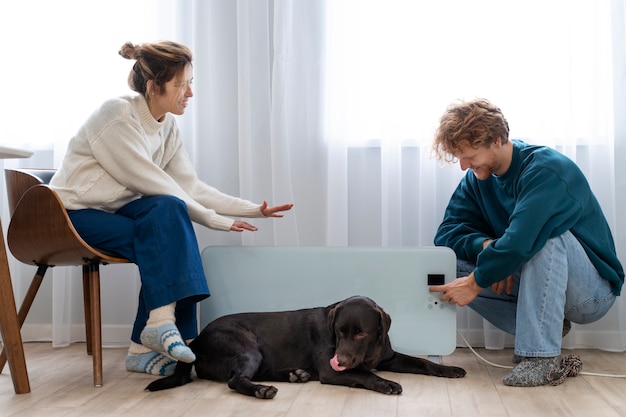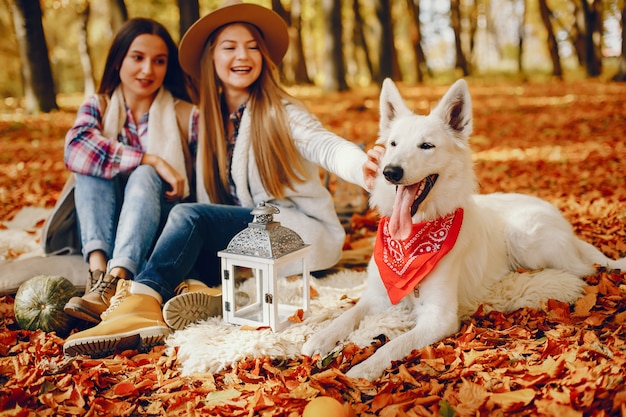Managing Pet Anxiety During September Storms in Philadelphia

Managing Pet Anxiety During September Storms in Philadelphia
September in Philadelphia brings a shift in weather, with frequent rain and thunderstorms that can leave both dogs and cats feeling anxious. For many local pet owners, storm season is a stressful time as their furry companions struggle with loud noises, flashing lightning, and sudden changes in atmospheric pressure. At Liberty Veterinary Clinic, located at 8919 Ridge Avenue, Philadelphia, PA 19128, we understand how overwhelming this can be. Our team of veterinarians is committed to helping you identify, manage, and prevent pet anxiety during storms, ensuring your pets feel safe and secure year-round.
This comprehensive guide will help you recognize the signs of storm-related anxiety in your pets, explain why it happens, and offer practical strategies for both immediate relief and long-term management. As your trusted provider of Philadelphia pet care tips, we'll also discuss when to seek professional assistance and how our veterinary services in Philadelphia can support your pet's emotional and physical well-being. If you’re searching for a vet near me who understands local weather concerns and offers compassionate, full-service care, Liberty Veterinary Clinic is here for you. For more information on regular wellness checks that can help monitor your pet’s behavior, visit our pet wellness care services page.
Recognizing Pet Anxiety During Philadelphia Storms
Identifying anxiety early is essential for effective management, especially during the unpredictable September weather in Philadelphia. Dogs and cats often display a range of signs when they are feeling anxious about storms. Symptoms include panting, pacing, trembling, hiding, excessive vocalization, or seeking constant reassurance from their owners. Additionally, some pets may show destructive behavior, such as scratching at doors or chewing on household objects, especially when thunder or heavy rain is present. Other signs are loss of appetite, house soiling, and dilated pupils, which can all point toward heightened stress.
Pet anxiety during storms may look different depending on your pet’s personality and past experiences. For example, a typically calm dog might startle at the first rumble of thunder, while a more sensitive cat could retreat under the bed for hours. If you notice your pet exhibiting any of these behaviors during local rain events, it’s a strong indication that storm anxiety is at play. Regular wellness examinations can help our veterinarians distinguish between anxiety-related symptoms and potential medical conditions, ensuring your pet receives the best care possible.
Why Do Pets Experience Storm Anxiety?
Understanding the reasons behind storm-related anxiety can help you address the issue more effectively. Philadelphia’s September storms bring a combination of loud noises, changes in barometric pressure, flashing lights, and even static electricity, all of which can be unsettling for pets. Dogs and cats have senses that are much more acute than humans, meaning they perceive storms in ways we might not fully appreciate.
For many pets, the unpredictability of thunder, wind, and rain is frightening. Some may associate these noises with past traumatic experiences, while others are genetically predisposed to heightened anxiety. In certain cases, pets who have not been gradually exposed to storms from a young age may be more prone to developing fearful reactions. The intensity and frequency of storms in Philadelphia and surrounding communities during September can exacerbate these issues, making it especially important to be proactive about pet anxiety during storms.
Professional Management and Treatment Options
When it comes to managing pet anxiety during Philadelphia storms, partnering with a veterinary team experienced in both behavioral and medical interventions is key. At Liberty Veterinary Clinic, our comprehensive approach includes assessing your pet’s physical and emotional health to tailor a plan that suits their specific needs. Treatment options involve behavior modification techniques, environmental adjustments, and, in some cases, medical therapies.
Behavior modification often includes desensitization and counterconditioning, where pets are gradually exposed to recordings of storm sounds paired with positive experiences like treats or playtime. Environmental changes, such as providing a quiet, comfortable hiding space or using calming pheromone diffusers, can create a sense of safety for your pet. For some pets, anti-anxiety medications or supplements may be recommended, especially if the anxiety is severe or persistent. Our veterinarians will discuss these options during your pet’s visit and help you weigh the benefits and potential side effects.
We also offer advice on high-quality products designed to ease storm anxiety, such as snug-fitting anxiety wraps or calming music designed for pets. If you have questions about particular treatments or want to discuss a tailored plan, scheduling an appointment with our team ensures your pet receives individualized Philadelphia pet care tips and solutions.
Home Care Strategies to Help Calm Your Pet
While professional support is invaluable, there are several practical steps you can take at home to reduce your pet’s anxiety during September storms in Philadelphia. Creating a safe haven is one of the most effective strategies. This might involve setting up a cozy den in a quiet room, away from windows and exterior doors, where your pet can retreat when storms roll in. Playing soothing music or white noise can help mask the sound of thunder and rain, providing additional comfort.
Maintaining a calm demeanor yourself is also important, as pets often pick up on their owner’s emotions. Reassure your pet with gentle petting and a soothing voice without over-coddling, as this can sometimes reinforce anxious behavior. Other techniques include distracting your pet with interactive toys, offering treats, or engaging in brief training exercises during a storm to redirect their focus. For some pets, thunder shirts or calming wraps can provide a gentle, constant pressure that eases anxiety.
Keeping up with regular pet wellness care services is another essential aspect of prevention. Routine check-ups allow our veterinarians to monitor your pet’s overall health and spot any changes in behavior that could signal anxiety or other health concerns. If you notice persistent anxiety, even outside of storm season, a wellness examination may help identify underlying causes and guide further treatment.
When to Seek Veterinary Care for Storm Anxiety
While many pets can be comforted at home, there are times when professional intervention is necessary. You should contact Liberty Veterinary Clinic if your pet’s anxiety is severe, leading to destructive behavior, self-harm, or signs of chronic stress such as significant appetite loss or withdrawal from family activities. Additionally, if your pet’s symptoms do not improve with home care or seem to worsen each storm season, it’s time to schedule a consultation.
Sometimes, anxiety can be mistaken for other medical conditions. For example, trembling or panting might be related to pain, illness, or metabolic issues rather than just storm anxiety. Our veterinary professionals can help differentiate between behavioral and medical causes, ensuring your pet receives the right treatment. During your visit, we will perform a thorough physical exam, discuss your pet’s history, and recommend appropriate diagnostics if needed.
For more information about what to expect during a visit or if you have concerns about your pet’s health, our FAQ page offers answers to common questions about our services and approach to care. Remember, early intervention is key to preventing long-term issues and helping your pet feel safe during every stormy night in Philadelphia.
The Importance of Local Veterinary Support
Having a trusted Philadelphia veterinary team on your side can make all the difference when managing storm-related anxiety in pets. Veterinary services in Philadelphia are not only familiar with the region’s unique weather patterns but also understand the specific needs of local pet owners. Our team at Liberty Veterinary Clinic is committed to providing personal, compassionate care tailored to the pets of Philadelphia and surrounding communities.
Searching for the best veterinarian near me or quality veterinary services near me in Philadelphia can be daunting, especially if you are new to the area or facing behavioral issues for the first time. Our clinic is proud to offer a wide range of services—from routine check-ups to advanced behavioral consultations—to support your pet’s well-being in every season. Whether you live in the heart of Philadelphia or in nearby neighborhoods, you can rely on us for expert guidance and ongoing support.
Take the Next Step: Schedule a Visit with Liberty Veterinary Clinic
Helping your pet overcome storm anxiety is a journey that starts with understanding, patience, and the right support from a dedicated veterinary team. By recognizing the signs early, creating a safe environment at home, and seeking professional guidance when needed, you can help your dog or cat navigate Philadelphia’s September storms with greater confidence and comfort.
If you’re ready to discuss your pet’s anxiety or want to learn more about our Philadelphia pet care tips, we invite you to schedule an appointment with Liberty Veterinary Clinic. Our veterinarians are here to provide comprehensive care, tailored recommendations, and ongoing support for your family’s needs. Routine wellness care visits are an excellent opportunity to address behavioral concerns and ensure your pet’s health is on track.
Contact us today at (215) 483-1066 or visit us at 8919 Ridge Avenue, Philadelphia, PA 19128 to experience the difference of a quality vet near me who truly cares about your pet’s well-being. Let our veterinary professionals be your trusted resource for veterinary services in Philadelphia—because your pet’s comfort and happiness matter, rain or shine.
Disclaimer: This blog is for informational purposes only and is not a substitute for professional veterinary advice. Always consult your veterinarian for concerns about your pet’s health or behavior.

















